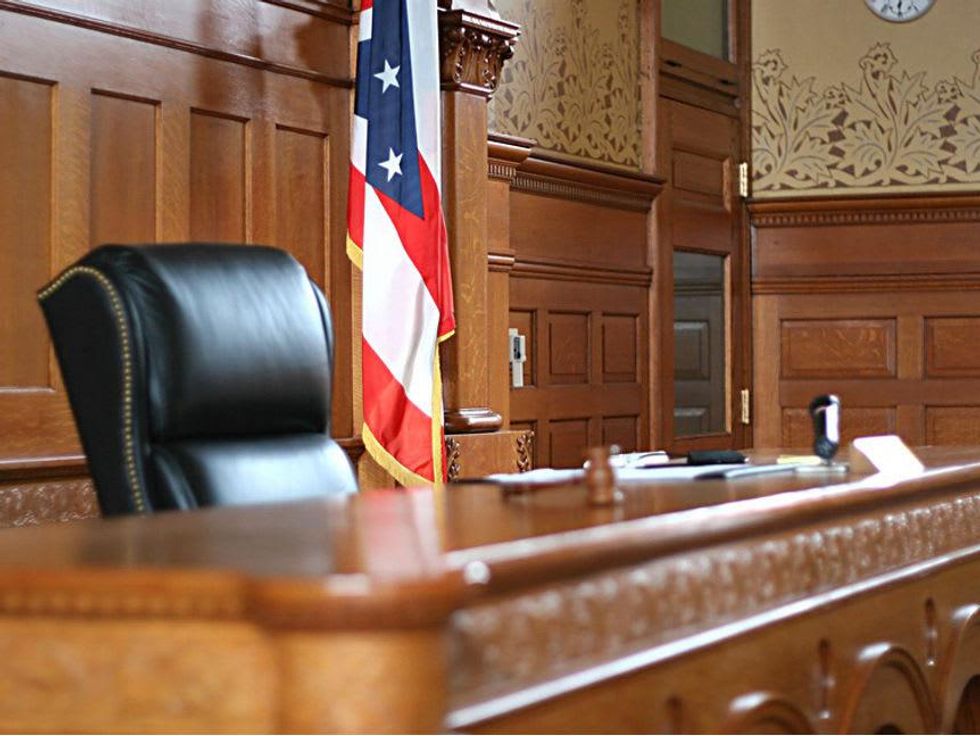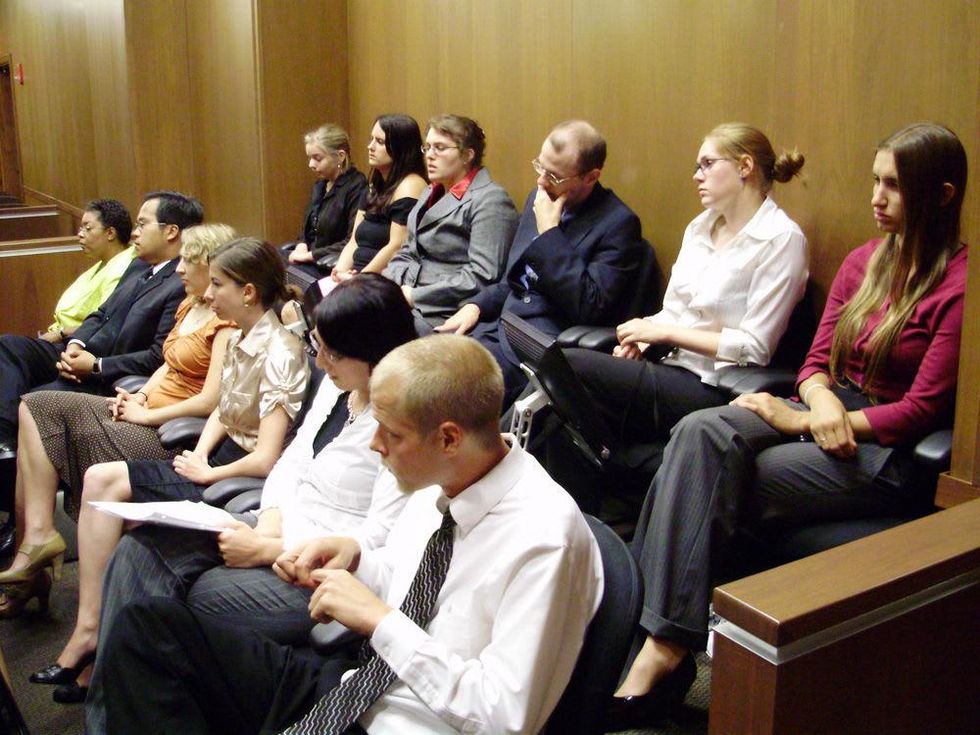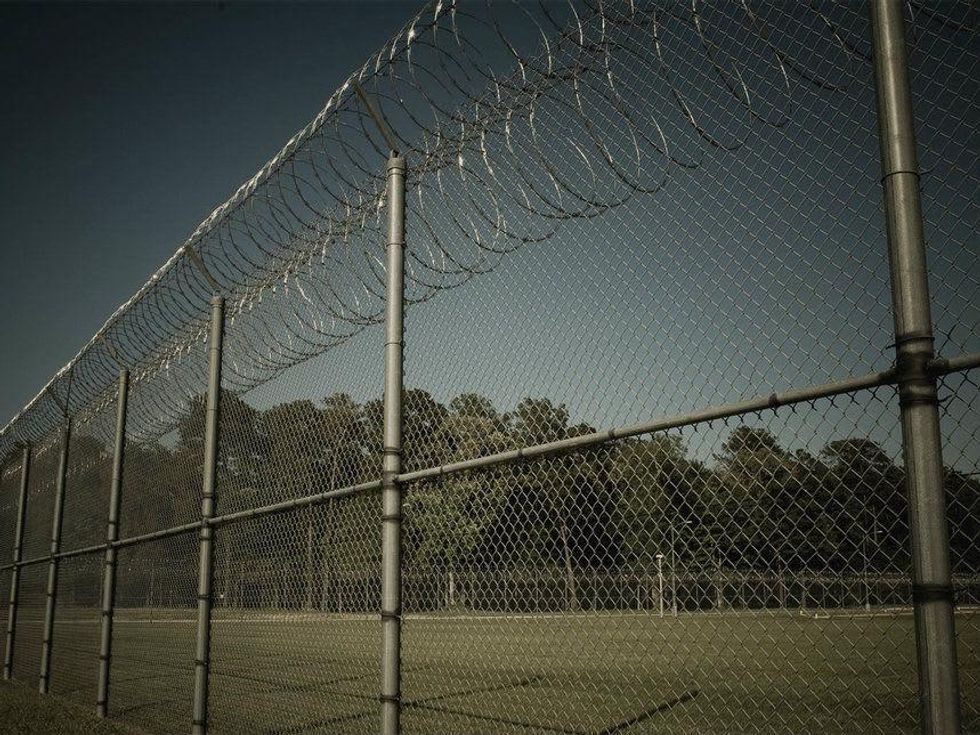Order in the Court
An unlikely tale of jury duty in Dallas County
It's an unspoken rule of humanity that no one wants jury duty. As a writer who already spends copious amounts of time in courtrooms, I am no exception. But that didn't stop the Dallas County powers that be from calling my name.
When the letter arrived, I pored over the exemptions list expectantly. Perhaps there would be a height requirement or the eyesight test that prevents people like me from flying military planes.
No such luck.
Apparently the fact that I am less than 70 years old and neither the caretaker of a child nor an invalid qualifies me to judge others. Duly noted.
I have some pretty unorthodox opinions about crime, and I figured I would identify myself as an unsavory juror in no time.
I was one of about 4,000 people reporting to jury duty on May 28, and I fully intended to shirk my civic duty at the first opportunity.
From 8:30 to 10 am, a patient woman called out the names of people who had either failed to fill out their jury questionnaire, reported to the wrong court or shown up on the wrong day. It was a long list.
I got my first chance to exit stage left around 11:30 am, when bailiff for the 282nd Criminal District Court started called out 60 names. I was one of them, meaning I had made the potential juror cut. I've never been more disappointed to be a part of something.
I have some pretty unorthodox opinions about crime, and I figured I would identify myself as an unsavory juror in no time. I waited patiently to share the fact that I’m philosophically opposed to the death penalty, or that I think the war on drugs is one of the worst things about America today.
Those issues never came up. Instead, the lawyers asked about topics that I could not find any reason to oppose. “Do you agree that juries should be able to determine guilt or innocence and, if guilt is determined, levy a sentence within the boundaries set by the Texas Legislature?”
I honestly think this was a warm-up question, meant to get the cognitive juices flowing after hours of waiting-room inertia. I racked my brain for the courage to convincingly say I was opposed to the foundation of our democracy. It never came.
My fellow potential jurors, however, had no trouble finding fault with our judicial branch of government.
One man said he didn’t believe he could ever sit in judgment of another individual. I knew I could not pull off his shtick. Heck, I was judging his haircut as he spoke. Another woman responded to questions only in bible verses. After several recitations of “He who is without sin, cast the first stone,” the judge waved her off. Lucky devil.
A chatty man managed to find fault with our jury system, the Texas Legislature and everything in between. He pontificated his points repeatedly, drawing guffaws and eye rolls from the peanut gallery. But he got the last laugh in the end.
After a particularly long monologue about his opposition to any sort of codification of crime, the defense attorney interrupted and declared, “Don’t worry about it. You will not be on this jury.”
But the silent ones among us — the ones who felt that law, order and punishment are good and necessary parts of a civilized society — did need to worry. Around 4 pm, after several hours of debating the merits of anarchy versus democracy, the jury was selected.
I winced when I heard my name called. If only I had feigned a passionate opposition to basic rules of law, I could have avoided this fate. Instead, I was stuck casting stones for Dallas County.
The felony theft trial was slated to begin May 29, and I dutifully arrived at 9:30 am to sit in judgment of another human being for the tidy sum of $36 a day.
Only I never got the chance. After sitting in the jury lounge for several hours, Judge Andy Chatham came in and told us all to go home. The theft charges were four years old, and the defendant didn’t agree to a deal until a jury sat waiting to decide his fate.
The threat of peer judgment, and the very real fact that we could have sent him to prison for 10 years, was just the push he needed to sign away his right to a trial. Chatham thanked us for our service and said he thought the system had worked in this case.
I wasted two days of my life just so the defendant could reach a plea deal with state. There would be no trial.
That's not typically the definition of jury duty, but it works all the same.



